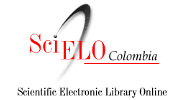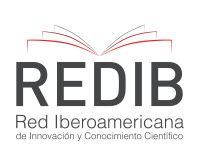A survey about knowledge and use of alternative therapies to that of traditional hormone replacement in menopausal women in Medellín (Colombia) 2009
DOI:
https://doi.org/10.18597/rcog.234Keywords:
phytoestrogen, menopause, symptom, alternative therapyAbstract
Objective: describing knowledge about and the use of alternative therapies to traditional hormone replacement in menopausal women.
Materials and methods: a cross-sectional, descriptive study of menopausal women was carried out in the city of Medellín, Colombia, during 2009. Inclusion criteria were: being aged ≥40, having finished their menstrual cycles at least one year beforehand and having no background of hysterectomy. Women who agreed to participate in the study answered a questionnaire requiring that they give anonymous information about socio-demographic variables, the date of their last menstruation, symptomatology during the menopause and the use and characteristics of alternative therapies and hormone replacement therapy during menopause.
Results: 274 women were surveyed; 10.6% of them were using natural hormones and 46.0% used soy-based products. Regarding alternative and complementary medical therapies for menopausal symptomatology different to natural hormones, 32.8% of the women stated that they had heard of some of them, the most well-known being homeopathy (18.6%), yoga (16.8%) and relaxation therapy (12.0%).
Conclusion: a high percentage of menopausal women in the survey knew about and used alternative therapies to that of traditional hormone replacement for managing menopauseassociated symptomatology, especially consuming phytoestrogens and soy-based products.
Author Biographies
Gloria Inés Martínez-Domínguez
Lina María Martínez-Sánchez
María Patricia Hormaza-Ángel
María de los Ángeles Rodríguez-Gázquez
Gabriel Jaime Rendón-Pereira
Edna Martínez-Rojas
Cristian Camilo Benítez-Restrepo
References
Nelson HD, Vesco KK, Haney E, Fu R, Nedrow A, Miller J, et al. Non hormonal therapies for menopausal hot flashes: systematic review and meta-analysis. JAMA 2006;295:2057-71.
Buckler H. The menopause transition: endocrine changes and clinical symptoms. J Br Menopause Soc 2005;11:61-5.
Palmer ME, Haler C, McKinney PE, Klein-Schwartz W, Tschirgi A, Smolinske SC, et al. Adverse events associated withdietary supplements: an observational study. Lancet 2003;361:101-6.
Rossouw JE, Anderson GL, Prentice RL, LaCroix AZ, Kooperberg C, Stefanick ML, et al. Risks and benefits of estrogen plus progestin in healthy postmenopausal women: principal results From the Women's Health Initiative randomized controlled trial. JAMA 2002;288:321-33.
Geller SE, Studee L. Botanical and dietary supplements for menopausal symptoms: what works, what doesn't? J Womens Health 2005;14:634-49.
van der Mooren MJ, Kenemans P. Postmenopausal hormone therapy: impact on menopause-related symptoms, chronic disease and quality of life. Drugs 2004;64:821-36.
Dodin S, Blanchet C, Marc I. Phytooestrogènes chez la femme ménopause. Medicine/Sciences 2003;19:1030-7.
Bonilla CA. Isoflavonas en Ginecología, terapia no convencional. Rev Colomb Obstet Ginecol 2004;55:209-17.
Rees M. Alternative treatments for the menopause. Best Pract Res Clin Obstet Gynaecol 2009;23:151-61.
Panay R, Rees M. Alternatives to hormone replacement therapy for management of menopause symptoms. Curr Obstet Gynaecol 2005;15:259-66.
Warren M, Shortle B, Dominguez J. Use of alternative therapies in menopause. Best Pract Res Clin Obstet Gynaecol 2002;16:411-8.
Brockie J. Alternative approaches to the menopause. Rev Gynaecol Pract 2005;5:1-7.
Botero J, Jubiz A, Henao G. Obstetricia y Ginecología. 7a. ed. Medellín: CIB; 2004. p. 597.
Chaikittisilpa S, Jirapinyo M, Chaovisitsaree S, Wipatavit V, Bunyaviroch S, Kanluan B, et al. Impact of women's health initiative study on attitude and acceptance of hormone replacement therapy in Thai women attending menopause clinics. J Med Assoc Thai 2007;90:628-35
Lukes A. Evolving issues in the clinical and managed care settings on the management of menopause following the women's health initiative. J Manag Care Pharm. 2008;14:7-13.
Castelo-Branco C, Peralta S, Ferrer J, Palacios S, Cornago S, Quereda F. The dilemma of menopause and hormone replacement--a challenge for women and health-care providers: knowledge of menopause and hormone therapy in Spanish menopausal women. Climacteric 2006;9:380-7
Wenrich TR, Cason KL. Consumption and perceptions of soy among low-income adults. J Nutr Educ Behav 2004;36:140-3.
Randolph JF Jr, Sowers M, Bondarenko IV, Harlow SD, Luborsky JL, Little RJ. Change in estradiol and follicle stimulating hormone across the early menopausal transition: effects of ethnicity and age. J Clin Endocrinol Metab 2004;89:1555-61.
Monterrosa A, Blumel JE, Chedraui P. Calidad de vida de mujeres en postmenopausia. Valoración con "Menopause Rating Scale" de tres etnias colombianas diferentes. MedUNAB 2009;12:80-5.
Gold EB, Sternfeld B, Kelsey JL, Brown C, Mouton C, Reame N, et al. Relation of demographic and lifestyle factors to symptoms in a multi-racial/ethnic population of women 40-55 years of age. Am J Epidemiol 2000;152:463-73.
Bair yA, Gold EB, Greendale GA, Sternfeld B, Adler SR, Azari R, et al. Ethnic Differences in use of complementary and alternative medicine at midlife: longitudinal results from SWAN participants. Am J Public Health 2002;92:1832-9.
Farrell E. Medical choices available for management of menopause. Best Pract Res Clin Endocrinol Metab 2003;17:1-16.
Cardini F, Lesi G, Lombardo F, van der Sluijs C; MSCG -Menopause Survey Collaborative Group. The use of complementary and alternative medicine by women experiencing menopausal symptoms in Bologna. BMC Womens Health 2010;10:7.
Michel JL, Mahady GB, Veliz M, Soejarto DD, Caceres A. Symptoms, attitudes and treatment choices surrounding menopause among the Q'eqchi Maya of Livingston, Guatemala. Soc Sci Med 2006;63:732-42.
Benvenuto R, Garay J. Los fitoestrógenos: ¿alternativa a la TRH en climaterio? Fronteras en Obstetricia y Ginecología 2002;2:49-60.
How to Cite
Downloads
Downloads
Published
Issue
Section
License
Copyright (c) 2011 Revista Colombiana de Obstetricia y Ginecología

This work is licensed under a Creative Commons Attribution-NonCommercial-NoDerivatives 4.0 International License.
| Article metrics | |
|---|---|
| Abstract views | |
| Galley vies | |
| PDF Views | |
| HTML views | |
| Other views | |
















